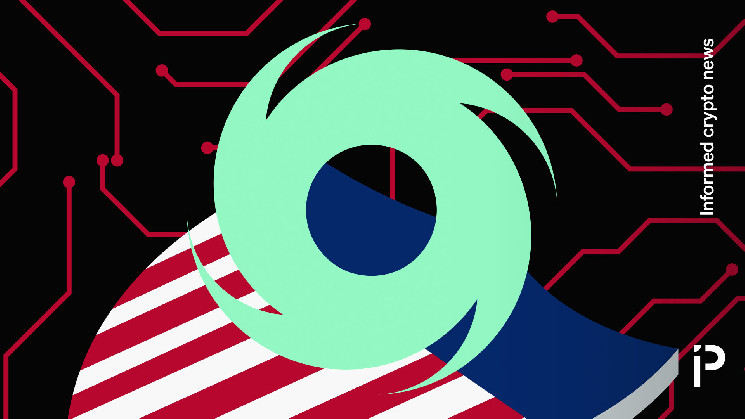The US Department of Justice (DoJ) has explained why Tornado Cash founder Roman Storm’s motion to dismiss his criminal lawsuit has been inefffective.
The DoJ reiterated that its indictment has nothing to do with whether the computer code of Tornado Cash is free speech or otherwise Constitutionally protected by the First Amendment.
“The defendant is not being prosecuted for posting computer code,” claimed the DoJ.
“Instead, he is being prosecuted for his use of it in furtherance of a profitable and illicit business.”
Indeed, there are many forms of speech – including spoken words – that the First Amendment does not protect. Criminal speech such as threats of violence are not protected by the First Amendment.
The US Constitution does not protect all speech
Similarly, DoJ explains that banks use computer code to process financial transactions. If that code executes the work of a money transmitter, as defined legally, then that code is not mere free speech and is, instead, computer code that humans must ensure is implemented in such a way as to not violate money transmission laws.
Tornado Cash was part code, part speech, part business, and altogether a human creation. Storm did not just publish code; he operated a business and made operational decisions for years.
Tornado Cash the protocol is not the same as Tornado Cash the business. Just because Tornado Cash had some open source code does not mean that all of Roman Storm’s actions involving that code as the Tornado Cash business owner are Constitutionally protected free speech.
The DoJ focuses on Storm’s purposeful actions. Specifically, prosecutors focus on his knowing operation of an alleged money laundering operation that provided him millions of dollars worth of personal profit for washing over $1 billion in alleged criminal proceeds.
Roman Storm faces criminal charges of conspiracy to commit money laundering conspiracy, conspiracy to operate an unregistered money transmitting business, and violations of the International Emergency Economic Powers Act.
For his part, Storm argues that at no time did he conspire with parties like North Korea’s Lazarus Group, which sent illicit funds through his coin mixer, apparently without his knowledge.
The free speech precedent of Bernstein v. DoJ
Storm is sticking with the argument that publishing open-source code is not a crime. His legal team will almost certainly cite Bernstein v. Department of Justice, an old lawsuit that forced the US government to modify its regulations regarding the “export” of encryption software onto the internet. Yes, there was a time when the US government categorized robust encryption software as a military-level “munition” and imposed regulations on publishing code online. Prior to Bernstein v. DoJ, publishing certain details regarding cryptographic security onto the internet required registration as a US munitions exporter.
Bernstein v. DoJ actually helped facilitate international e-commerce by making it possible to publish more open source code, which ultimately allowed the secure processing of online card payments.
Read more: Coin Center loses Tornado Cash lawsuit, intends to appeal
Storm claims that Congress passed an impermissibly vague law
Storm also alleges that DoJ’s charges against him are unconstitutionally vague, which prosecutors rebuffed in their opposition. DoJ counterargues that Storm’s complaints mostly claim that the language of a law passed by Congress is somehow unconstitutionally vague – which is not legally availing in Storm’s defense. Courts must operate under the assumption that acts of Congress are not impermissibly vague, per precedent set in the prestigious 2nd Circuit Court of Appeals case USA v. Houtar.
If Storm wants Congress to change a law, DoJ argues, he should write to his legally elected representatives. For now, it is the job of the executive branch of government, including DoJ, to enforce the written laws of Congress, the legislative branch of government.
Was violating clear sanctions an act of free speech by Tornado Cash?
DoJ also rebuffed Storm’s claim that he should not face indictment for exporting Tornado Cash software. DoJ is crystal clear in its memorandum, reiterating that its indicment “does not charge the defendant with exporting Tornado Cash software.”
Prosecutors clarified that the charge covers Lazarus Group’s sending of illicit funds from a known, sanctioned wallet belonging to Lazarus Group, which the DoJ argues Tornado Cash should have known about and attempted to prevent. The Department of the Treasury clearly and publicly added Lazarus Group crypto wallets to its sanctions list in 2022.
US district judge Katherine Polk Failla of the US District Court for the Southern District of New York will read DoJ’s opposition and decide whether to honor or dismiss Roman Storm’s motion to dismiss case number 1:23-cr-00430, USA v. Storm.
Read the full article here

